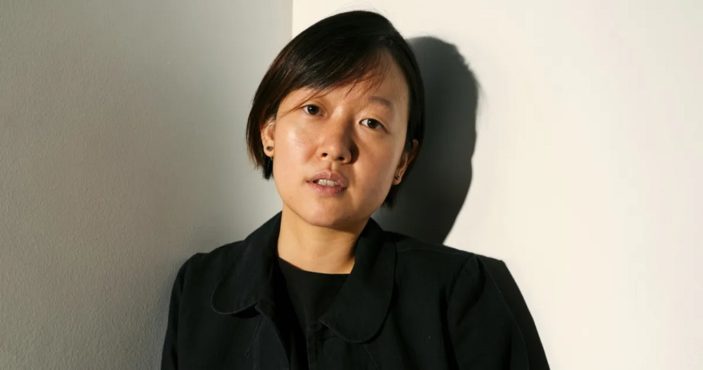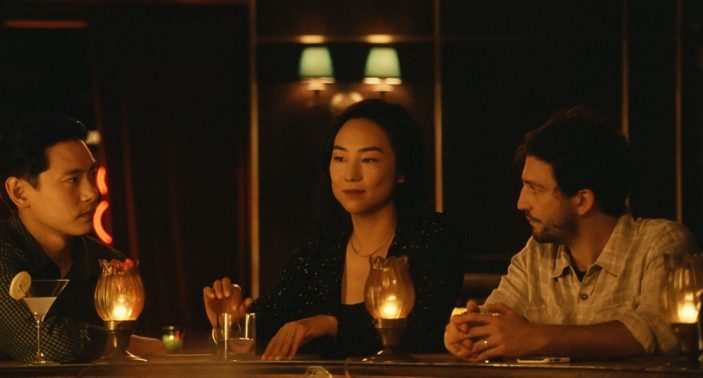
A delicate drama born from her own personal experience, Celine Song is laying emotions bare with the release of Past Lives (you can read our review here).
Following its stellar reception at this year’s Sundance Film Festival, the South Korean-Canadian director, playwright, and screenwriter is telling her story globally as the film releases in Australian cinemas from August 31st.
To coincide with its opening, Peter Gray spoke with Song about transcending narrative borders with her story, her unique approach to garnering organic chemistry from her actors, and how she utilised her background as a theatre director when sculpting her debut feature film.
I’m very excited to talk to you about this film. First of all, I mean this in the most respectful way, thank you for making me cry. That ending just tipped me over…
Oh, thank you (laughs). That means a lot.
I really loved that this film has this universal appeal with its story, despite it having that specificity regarding Korean culture. Was that intentional on your behalf? To create a story that could transcend narrative borders?
Yeah, yes, absolutely. I think that what you’re always hoping for when you tell a story that is so specific is, because you’re a person, that there’s going to be other people that feel connected to what you are connected to – even if it’s coming from a place of your own personal history. I think that’s what I’ve been most excited about, to hear that regardless where they come from, they feel connected to it.
Because that feeling that you’re happy, you’re settled, you’ve got it all… and then wondering “What if?” is something that I felt brought this authenticity to it. Especially when you look at the way (the characters of) Nora, Arthur and Hae Sung interact with each other. But there’s also that awkwardness when (Arthur and Hae Sung) are talking. Polite discomfort, I would like to say. As a director, could you expand for me on achieving that mentality of authenticity and awkwardness?
I think that part of it is is that you’re actually recognising that, for these two guys, they only know a part of Nora. They know Nora really differently. And the way they know Nora is actually a mystery to the other man. They each have the key part of Nora that the other doesn’t have access to. That’s what’s really special about these characters meeting in the film. And something that I did is that I kept the actors who play Hae Sung (Teo Yoo) and Arthur (John Magaro) apart until the moment their characters meet for the first time. The first time those characters meet is actually the first time the actors met each other, so both of them had this process with Greta Lee, who plays Nora, in rehearsal, and that allowed each of them to form their own chemistry with her without being competitive or thinking about the other guy.
I think Greta would be the first to tell you that it felt so different with each guy, and that when they met for the first time we’re seeing the reconciling of the idea of what the other guy is like, so there’s a bit of a build up of what they think the other is like. You also see how different they both are with Nora, and we get to see that explosion of them crashing into each other. Yes, it’s awkward, but that’s also what’s so fun about it.
It’s really quite rare to have a film of this structure where we aren’t rooting for one man over the other, because, as you said, they both have these certain parts of Nora’s life, and individually they’re both great people. Was any of that love story storyboarded from a personal experience? Or a conversation?
It really is firmly inspired by this moment where I actually found myself sitting in a bar between my childhood sweetheart and my husband. I was speaking two languages and translating between these two guys. I remember feeling like I was translating between two parts of my own life. There was something about feeling like I was a bridge or portal between these two worlds that was the inspiration for the whole film. That’s what really started out the journey of making the film, so it did come from this very, very personal moment.

Talking of the cast before. Greta Lee was someone I first came to know from the movie Sisters. I love that performance, she’s so hilarious, and you can really see that comedic spark all throughout Past Lives too. How did her casting, and by extension, John Magaro and Teo Yoo, come about for you?
Both Greta and Teo auditioned for me. They submitted audition tapes, and they were two of many that I watched, but I really liked their performance(s). I met them, and it was in that conversation that I realised they were right for this. Sometimes the best way to describe it is as if you’re talking about falling in love, and in the end it’s that inevitable feeling you get where you know that this is “the” person. It’s hard to explain, except to talk about it as a soul match, or something like that. With Nora we talked for two hours, and it really led me to just believing her as Nora.
Was there ever that worry that in keeping John and Teo aside that it may not result in the desired effect? Obviously you have faith in your collective talent, but was it ever a concern that their chemistry may not be as intended?
Because they’re such good actors I knew it was going to work out regardless. The first thing I think about when casting the role is, well, this movie really does live on character spaces and the language they speak, so how good are these actors? And what is it they can handle? I think I was just looking for actors who could do anything in that way. Actors who are good at their craft, first and foremost.
And having that theatre background, did that help create a certain atmosphere on set? Was it a massive asset to you in moving into the film space?
Yeah, I think so. I feel because I worked in theatre for, like, over 10 years, it was really something that I knew I had the skillset for. Story, character, scene work, blocking… things like that that transfer directly to filmmaking, because that’s exactly what is expected of a director. But, you’re right, I think that my background in theatre makes me the kind of filmmaker I am. Instead of doing lots of cuts or editing something together, I find myself more interested in keeping the camera where it is and treating the frame like a stage. For example, the scene where Nora is in the bathroom and Arthur is in the kitchen, we’re using this very common New York City apartment structure. Quite often the bathroom is in the kitchen, and that’s because that’s often the only place you can get plumbing in the apartment. That’s really part of the reason those apartments look like that, but we’re just getting to watch these two actors move around that space like it’s a stage. It’s meant to feel like a stage where characters are able to live and play and move from one corner to another. I think that was really the thing that resulted from me being a theatre person first.
Past Lives is now screening in Australian theatres.
